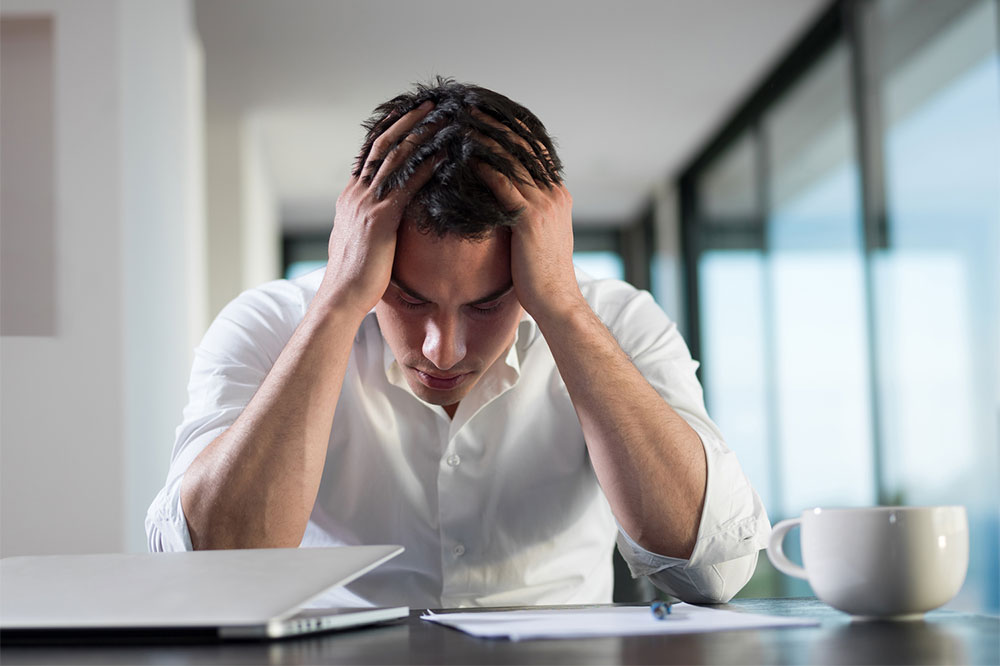
Top 10 signs of depression to be aware of
Depression can trigger an overwhelming feeling of sadness or cause someone to lose interest in things they once loved. Such an illness can alter how one thinks, feels, and reacts to even simple things; subsequently, physical and emotional well-being take a downswing. If such changes are left undiagnosed, the effects leak into daily routines and general lifestyles. We have listed 10 potential changes that could indicate a mental health issue.
Appetite
The first noticeable change is a disruption in meal patterns. One may have either have too little or the other way round, and that can change other aspects of their lifestyle and routine. Some studies even link increased inflammation in the body as a sign of depression.
Focus
Feeling anxious can make focusing on a conversation and holding a single train of thought a bit cumbersome. This change in mindset changes the way one lives at home, e.g., the house can gradually get messy. Other aspects that are affected include the way one works and sleeps.
Smiling depression
Body language doesn’t always show if someone’s feeling depressed. Certain individuals who feel lonely or sad hide their feelings and symptoms in public by smiling. And that’s where the term smiling or hidden depression comes in. Asking for help is something they may feel fearful of.
Mood
While an emotion like anger is not mutually exclusive with depression, it is not uncommon for someone to experience such a mood swing. Changes in temperament can be triggered by even a mild disagreement. Not being able to suppress irritability is a possible indicator of mental health being affected.
Exhaustion
Feeling extra fatigued after work is something we all deal with at some point. But sometimes, that feeling can become difficult to shake off. A constant sense of being tired makes its way into one’s daily routine. One way of perceiving this sign is the mind’s struggle with addressing thoughts of negativity. Research shows that over 90% of people with depression are susceptible to fatigue.
Inclination to hobbies
A common sighting one can notice in someone feeling the effects of depression is the loss of interest in one-loved hobbies. The National Institute of Mental Health vouches for this statement as well. The excitement or calm one may have felt before plateaus to a point where even new hobbies won’t feel appealing.
Low zest
The signs discussed above have the tendency to make someone feel a lowered zest for life. Just like the lack of inclination in hobbies, one’s passion in their personal, social, and professional lives may not seem to be appealing anymore.
Physical pains
The mental effects of depression find their way into one’s body. Back pains, digestive issues, and headaches become a bit more prominent. A sign of depression like this one can disrupt physical well-being and even worsen.
Lack of optimism
As previously mentioned, the lack of passion affects quite a few aspects of life. Feeling this way can make one feel not only less optimistic also quite toxic and vindictive. One may feel disconnected with who’s around them and can come across as dismissive.
Sleeping pattern
Much akin to the change in appetite, irregular sleep cycles have a contrasting nature as far as depression is concerned. One may sleep too much or too little, and mood has a lot to do with it. Research posits that people who sleep too little are at a greater risk of feeling chronically depressed.
When faced with signs or symptoms of depression, one must know that help is readily available for them, with no apparent judgment or even stigma. Those seeking medical assistance for someone with depression can find help through medical professionals or look up ways to help online. Some essential steps to helping someone reach out include patiently l istening to the individual and helping them feel calm by letting them vent.
There are many free clinics and hotlines all over the country with professionals who help people find a way to feel like they used to. Seeking help should be prioritized when it comes to dealing with depression, but one can also follow these steps after consultation with a doctor to feel better physically, mentally, and even emotionally.
- Meditation, deep breathing, yoga, and exercise to reduce stress.
- Eating healthy meals.
- Joining a support group.
- Seeking help from family and friends.
- Improving one’s self-esteem through positive self-affirmations.
Reaching out is a big step for someone feeling the effects of depression, and all the love and encouragement one gets will help pave a better path in life.




